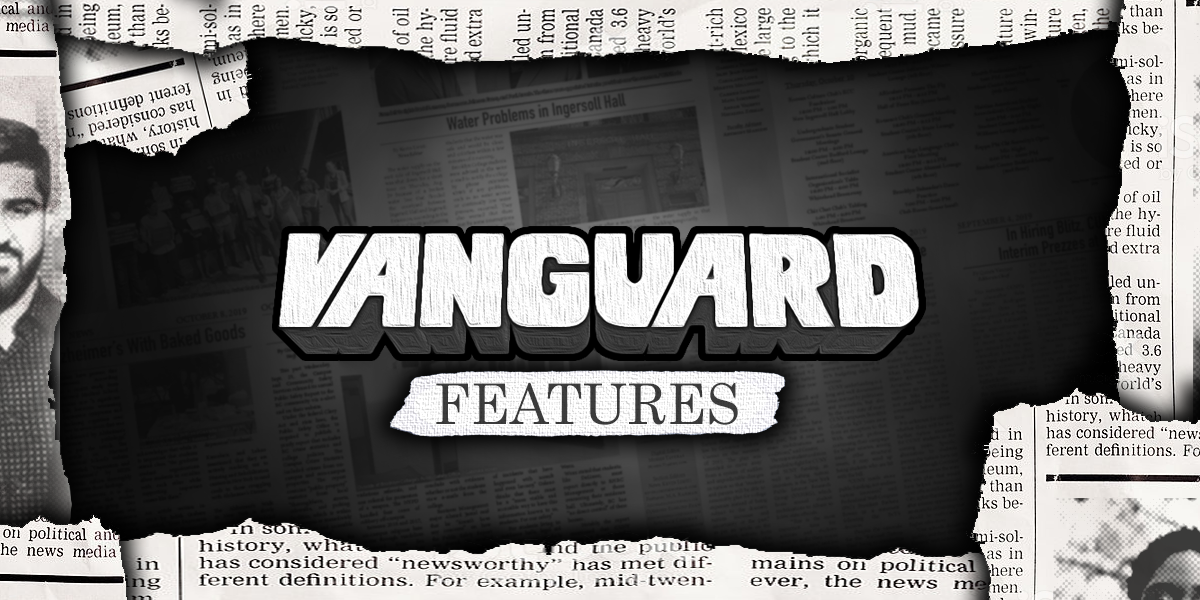
As the country’s general elections came to a close, eligible CUNY students made their homestretch in filling their ballots and casting their votes. In New York City, over 1.1 million voters showed out to early poll sites, not letting the pandemic stop them from exercising their rights. For new voters across CUNY campuses, making up the 6.2 million who turned out this year nationwide, casting their votes was worth any hurdles that came their way – including their anticipation of excessive wait times and election unrest.
“It’s a civic duty to vote, so might as well take advantage of it. If you have the opportunity to make your voice heard – you might as well do it,” said Ridwan Waseef, a Hunter College undergraduate.
With news tailing the long lines of polls, Waseef assumed his site at Laguardia Community College would be the same. To his surprise, the process was relatively swift. Once he had his ballot in hand, the surge of coronavirus cases, and related deaths peering over 233,000 (as of press time), influenced his decisions. In New York State alone, over 33,000 residents died due to COVID-complications. For Waseef, these deaths were preventable if necessary precautions and actions were implemented earlier by government officials.
“That number just kept going through my mind. Those people deserve – I mean, you can’t bring them back alive – but to avoid those conditions in which people died, we need to do something to avoid that,” said Waseef.
Similarly, for Queens College student Christina Rhim, the significant tolls that the pandemic has inflicted on healthcare, the economy, and the survival of Americans with the country’s high unemployment rates were difficult to ignore while casting her vote. She hopes her presidential candidate of choice would manage all the issues that will come up during their administrative years.
“There’s just so many things going on, it’s like one thing after another after another. If the president’s able to keep up with all those problems and be able to find a solution to them, I think that’s what the president should do – find solutions.”
Rhim believes her vote, and that of anyone else’s, has substantial weight in the election. Having her first voter experience being in a year filled with a heightened awareness of environmental issues, a troubling economy, and other challenges has been eye-opening. In the long-term, this election for a new head of state can make or break the wheels of progress.
“I don’t know what’s going to happen after the election. I just have a feeling that with everything going on, the president that is going to be chosen is going to have a big impact on our future,” said Rhim.
By contrast, BC first time voter Paola Muñoz’s experience casting her first vote felt anti-climatic. New York is a democratic state, not a swing one like New Hampshire or Minnesota, which led Muñoz to consider her decision relatively insignificant.
“Honestly, voting at least in New York, I felt that the vote I was going to give in wasn’t going to really count because I know New York is usually a blue state,” said Muñoz. One of her major concerns about voting is the electoral college and its disregard for each state’s populations. Though she does not think the system should be completely removed from presidential elections, she thinks it needs reform.
“It invalidates the voices of a lot of voters because it’s based on a chance really, it’s based off a system that was created in the very, very beginning of America that hasn’t really changed. This is an issue because a lot of things have changed in the US.”
For Nizar Alvarez, a BC student who has worked as a poll site translator since 2016, exercising his right to vote was initially not his plan. Though he did not hit the polls as a voter before this year, he had an interest in knowing more of how elections operated. After sharing a heartfelt moment with a newly-turned American citizen, who was excited about voting for the first time, he decided to continue being a poll worker. Sometime later, as he scrolled through his social media, Alvarez decided to cast his ballot after being registered for two years.
“I’ve seen people’s pictures on social media saying that, ‘They want to vote, but they can’t. You can vote, but you choose not to – so you’re throwing away your rights as a citizen’,” said Alvarez. “(…)It kind of felt uncomfortable at first, and then it became guilt. I can vote, and other people can’t for a number of reasons, but they want to vote. It kind of just stemmed from that.”
During this election season, Baruch College undergraduate Ekra Kazi has used social media to inform her friends about voter information. Whether it be sharing light-hearted TikToks of young voters like herself or posting resources on her Instagram, Kazi has found that it’s essential to keep others informed of their rights. Though she has voted before in primaries, this year was her first in a general election.
“I think having my entire age group being so passionate, informative, and caring, is really setting up the future for these young soon-to-become voters – which is important.”
Currently, former Vice President Joe Biden is ahead of President Donald Trump. As all votes are gathered and counted, it is likely that the outcome will change. But, in the meantime, these first-time CUNY voters will retain their patience in waiting for the 46th elected head of state.
“I think one important thing to keep in mind is, no matter who wins the election you shouldn’t be discouraged from your right to vote,” said Waseef.
